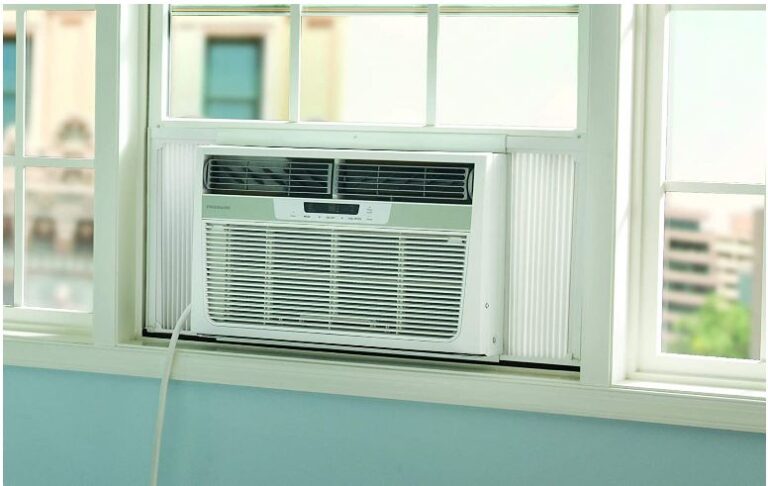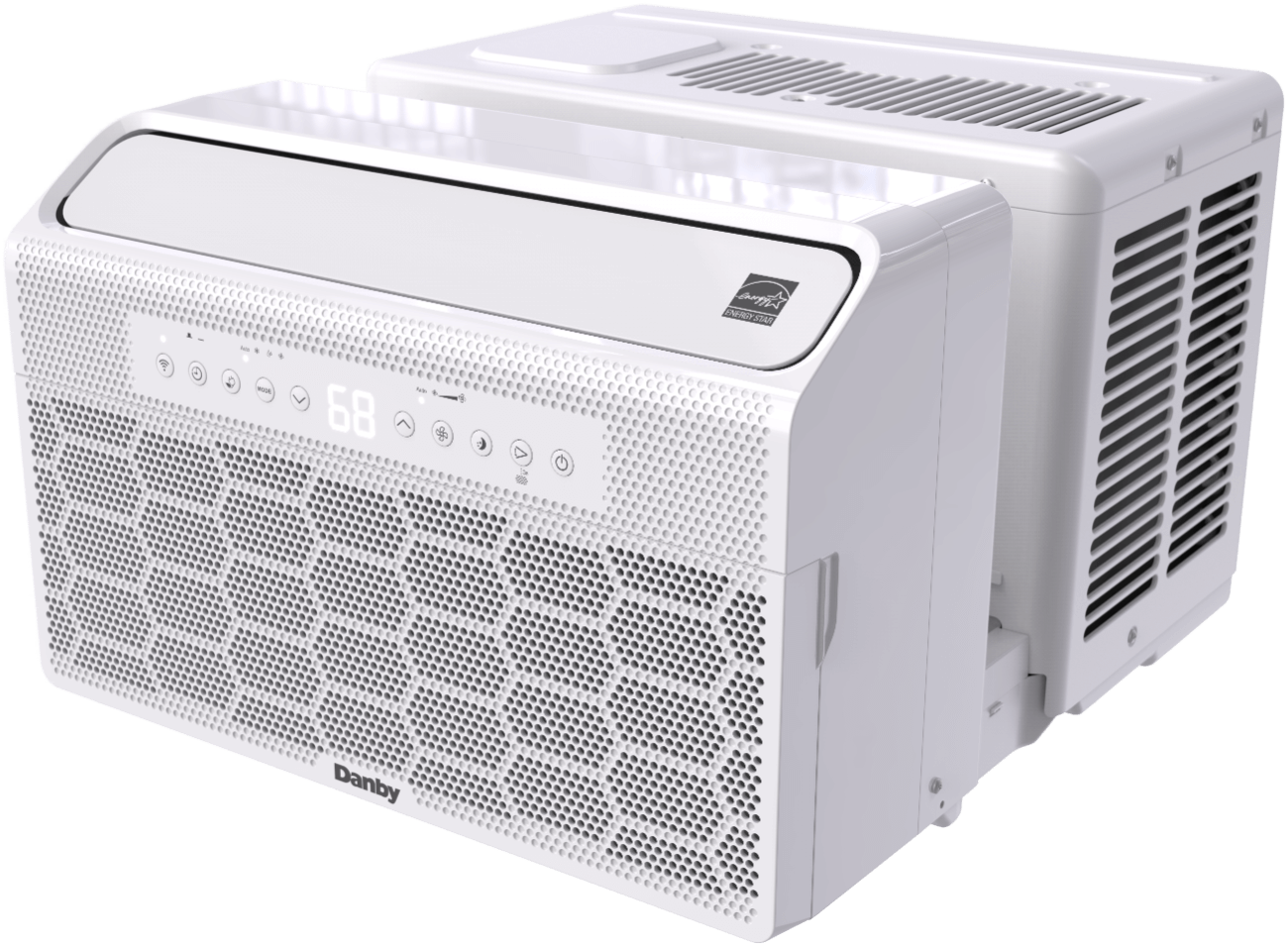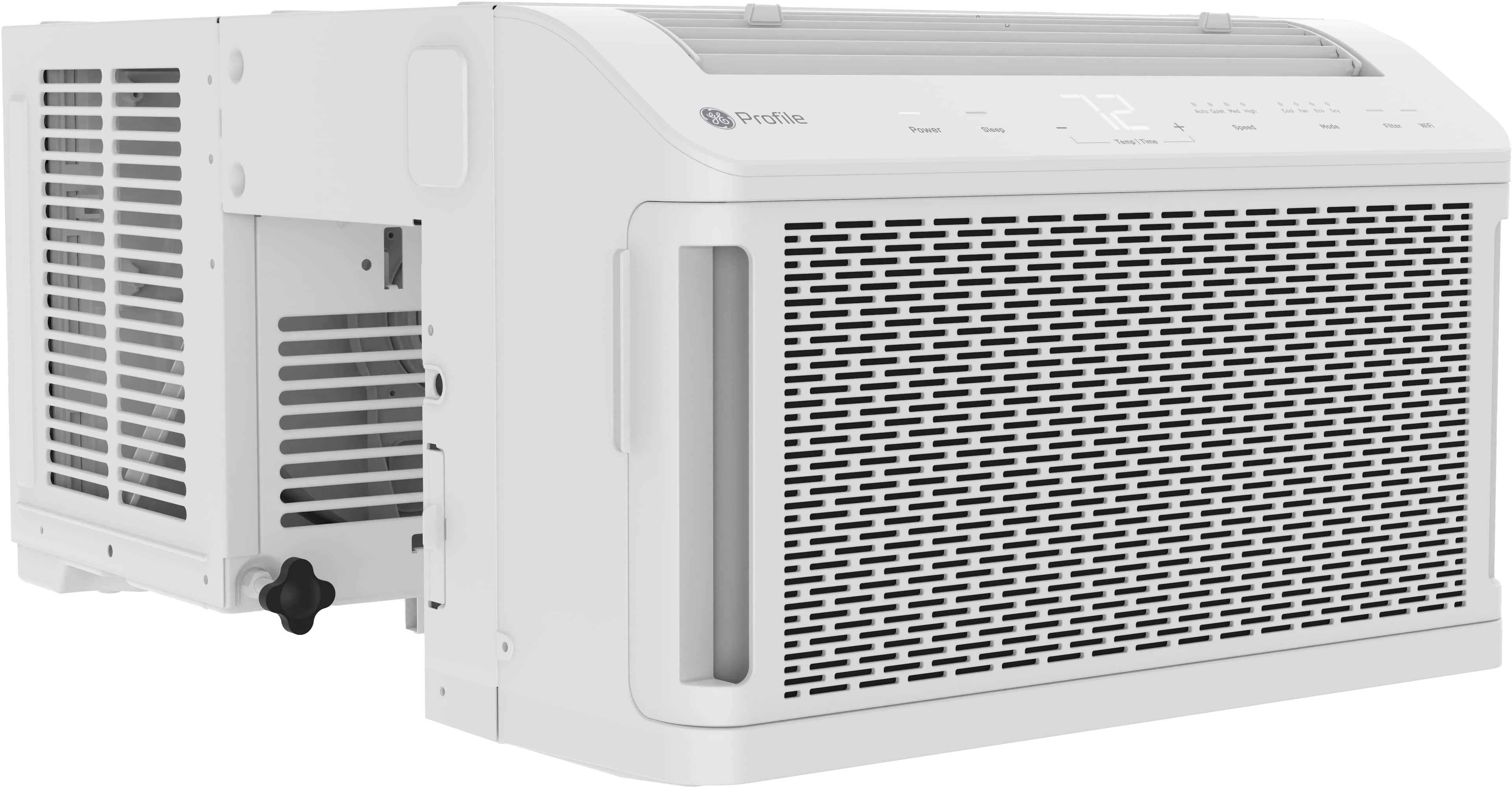Window Air Conditioner Heat Pump Reviews

Choosing the right window air conditioner with heat pump functionality can significantly improve your home's comfort year-round. These units offer both cooling in the summer and heating in the winter, making them a versatile and energy-efficient choice. This guide provides a comprehensive overview to help you navigate the market and select the best window AC heat pump for your needs.
Understanding Window AC Heat Pumps
A window AC heat pump is essentially a window air conditioner with a reversible refrigeration cycle. In cooling mode, it extracts heat from your room and vents it outside. Think of refrigerant as the 'blood' of the AC system, carrying heat from inside to outside. In heating mode, this process is reversed: the unit extracts heat from the outside air (even in cold temperatures) and transfers it inside.
The ability to both cool and heat makes them a more cost-effective and convenient option than purchasing separate air conditioners and space heaters. They can be particularly beneficial for smaller spaces or for supplementing existing heating and cooling systems.
Key Components of a Window AC Heat Pump
- Compressor: The heart of the system, it circulates the refrigerant and pressurizes it, raising its temperature.
- Evaporator Coil: Located inside the unit, this coil absorbs heat from the room when cooling and releases heat into the room when heating.
- Condenser Coil: Located outside the unit, this coil releases heat when cooling and absorbs heat from the outside air when heating.
- Refrigerant: The substance that absorbs and releases heat as it cycles through the system. R-32 is a more environmentally friendly option than older refrigerants.
- Reversing Valve: This is the component that allows the system to switch between cooling and heating modes.
- Fan: Circulates air over the coils to maximize heat transfer.
- Control Panel: Allows you to adjust temperature, fan speed, and mode settings.
Factors to Consider When Choosing a Window AC Heat Pump
Selecting the right window AC heat pump involves careful consideration of several factors. Here's a breakdown of the most important ones:
1. BTU (British Thermal Units) Rating
BTU is a measure of the unit's cooling and heating capacity. A higher BTU rating indicates a more powerful unit, suitable for larger rooms. Choosing the right BTU is crucial; too low, and the unit will struggle to cool or heat the space adequately; too high, and it may cycle on and off too frequently, leading to inconsistent temperatures and wasted energy.
Here's a general guideline for BTU based on room size:
- 100-150 sq ft: 5,000-6,000 BTU
- 150-250 sq ft: 6,000-8,000 BTU
- 250-300 sq ft: 8,000-10,000 BTU
- 300-350 sq ft: 10,000-12,000 BTU
- 350-400 sq ft: 12,000-14,000 BTU
These are just guidelines, however. Consider factors like ceiling height, insulation quality, and the number of windows when making your final decision. Rooms with high ceilings or poor insulation will require a higher BTU rating.
2. Energy Efficiency (EER and SEER)
EER (Energy Efficiency Ratio) measures the cooling efficiency of an air conditioner. It's calculated by dividing the cooling output (BTU) by the power input (watts). A higher EER indicates greater energy efficiency. Look for an EER of 10 or higher.
SEER (Seasonal Energy Efficiency Ratio) is a more comprehensive measure of cooling efficiency, taking into account performance over an entire cooling season. While SEER is typically used for central AC systems, some advanced window units may also have a SEER rating. A higher SEER also indicates greater efficiency; look for SEER ratings of 15 or higher, if available.
For heating efficiency, look for the HSPF (Heating Seasonal Performance Factor). A higher HSPF also indicates better efficiency in heating mode.
Choosing an energy-efficient unit will save you money on your electricity bills over the long run.
3. Heating Performance (Minimum Operating Temperature)
Not all window AC heat pumps are created equal when it comes to heating. The minimum operating temperature specifies the lowest outdoor temperature at which the unit can effectively extract heat. Some models may struggle to provide adequate heating when temperatures drop below freezing (32°F or 0°C).
If you live in an area with cold winters, pay close attention to the minimum operating temperature. Look for models specifically designed for low-temperature heating or consider supplementing with another heating source during extremely cold periods. Advanced units may have a low-ambient heating mode.
4. Noise Level
Window AC units can be noisy, especially older models. Consider the noise level, measured in decibels (dB), especially if you plan to use the unit in a bedroom or living room. Look for models with a noise level of 55 dB or lower for quieter operation. Features like sleep mode often reduce fan speed and noise.
5. Features and Functionality
Modern window AC heat pumps come with a variety of features that enhance convenience and performance:
- Remote Control: Allows you to adjust settings from across the room.
- Programmable Timer: Lets you schedule the unit to turn on or off at specific times.
- Sleep Mode: Gradually adjusts the temperature and reduces fan speed for comfortable sleep.
- Auto Mode: Automatically selects the appropriate cooling or heating mode based on the room temperature.
- Dehumidifying Mode: Removes excess moisture from the air.
- Fan-Only Mode: Circulates air without cooling or heating.
- Air Filter: Captures dust, pollen, and other allergens from the air. Look for washable or replaceable filters.
- Smart Features: Some models offer Wi-Fi connectivity and can be controlled via smartphone apps or voice assistants.
6. Installation
Most window AC heat pumps are designed for relatively easy installation, but it's still important to consider the installation process. Ensure the unit is compatible with your window size and type. Some units may require professional installation, especially larger or heavier models.
Consider a unit with adjustable side panels for a secure and airtight fit. Proper installation is crucial for optimal performance and energy efficiency.
7. Price and Warranty
Window AC heat pumps range in price depending on their features, capacity, and energy efficiency. Set a budget and compare prices from different retailers. Also, check the warranty offered by the manufacturer. A longer warranty provides peace of mind and protection against potential defects.
Top-Rated Window AC Heat Pump Brands
Several reputable brands offer high-quality window AC heat pumps. Some of the most popular and well-regarded brands include:
- LG: Known for innovative features and energy-efficient models.
- Frigidaire: Offers a wide range of options, including budget-friendly models.
- GE (General Electric): A trusted brand with a long history of producing reliable appliances.
- Midea: A global manufacturer offering competitive pricing and decent performance.
- hOmeLabs: Offers units with focus on affordability and practical features.
Read online reviews and compare specifications from different brands to find the best option for your needs.
Tips for Using Your Window AC Heat Pump Efficiently
To maximize the energy efficiency and lifespan of your window AC heat pump, follow these tips:
- Seal the Window: Ensure a tight seal around the unit to prevent air leaks. Use weather stripping or foam insulation if necessary.
- Clean the Air Filter Regularly: A dirty air filter restricts airflow and reduces efficiency. Clean or replace the filter every month or two.
- Close Curtains or Blinds: During the hottest part of the day, close curtains or blinds to block sunlight and reduce the heat load on the unit.
- Use a Fan: A ceiling fan or oscillating fan can help circulate air and distribute cooling or heating more evenly.
- Set the Thermostat Wisely: Avoid setting the thermostat too low in the summer or too high in the winter. A comfortable and energy-efficient temperature range is typically between 72-78°F (22-26°C).
- Turn Off When Not Needed: If you're leaving the room for an extended period, turn off the unit to save energy. Use the programmable timer to schedule it to turn on before you return.
- Consider Zone Cooling/Heating: Use the window AC heat pump to cool or heat only the rooms you're using, rather than the entire house.
- Professional Maintenance: Have the unit professionally inspected and serviced periodically to ensure optimal performance and prevent potential problems.
Conclusion
A window AC heat pump can be a valuable addition to your home, providing year-round comfort and energy savings. By carefully considering the factors outlined in this guide, you can choose the right unit to meet your specific needs and enjoy a more comfortable and efficient living environment. Remember to prioritize BTU rating, energy efficiency, heating performance, noise level, features, installation, and price when making your decision. Investing in a high-quality and properly sized window AC heat pump is an investment in your home's comfort and your long-term savings.










